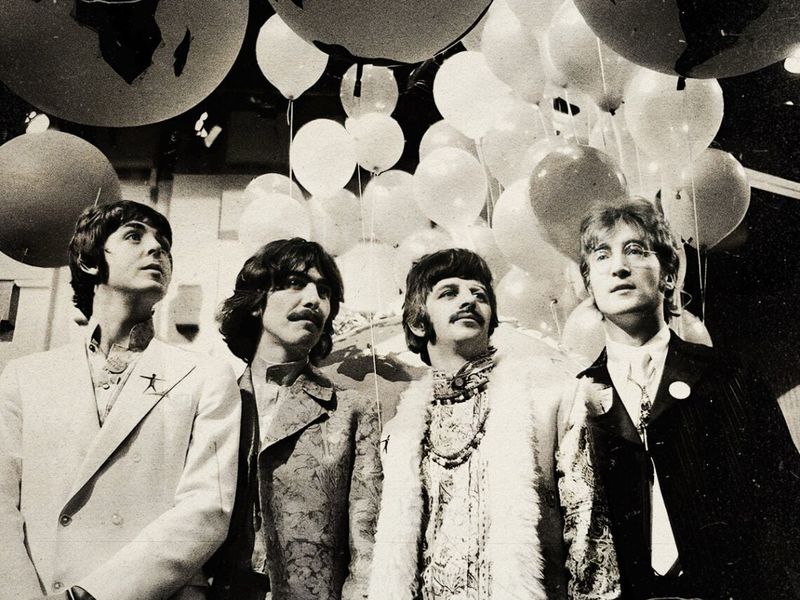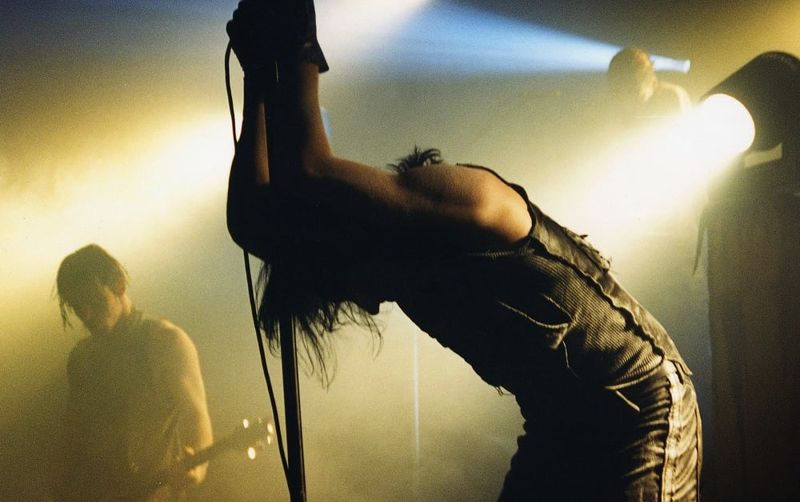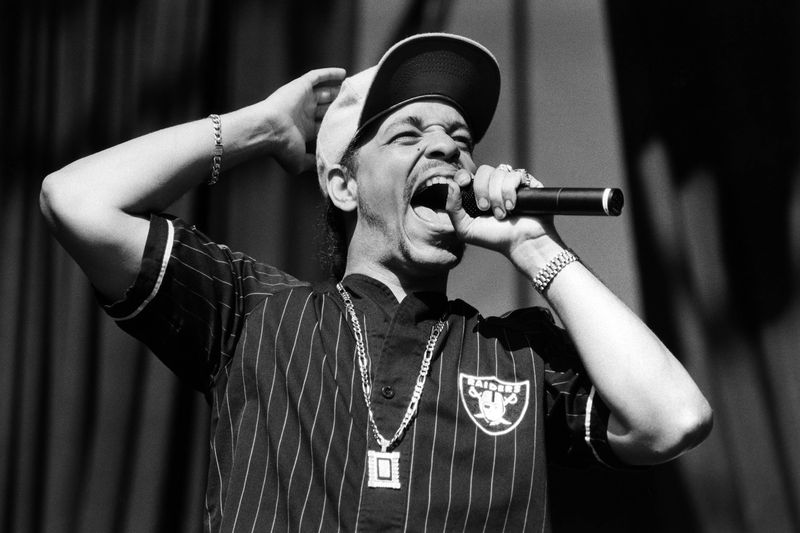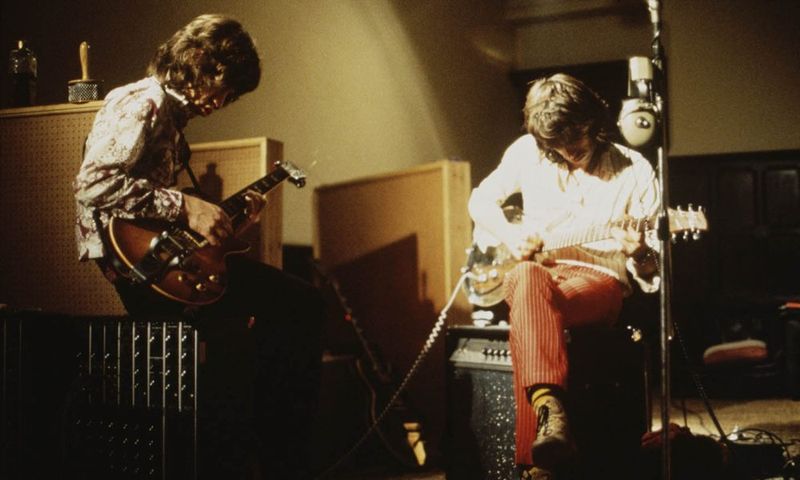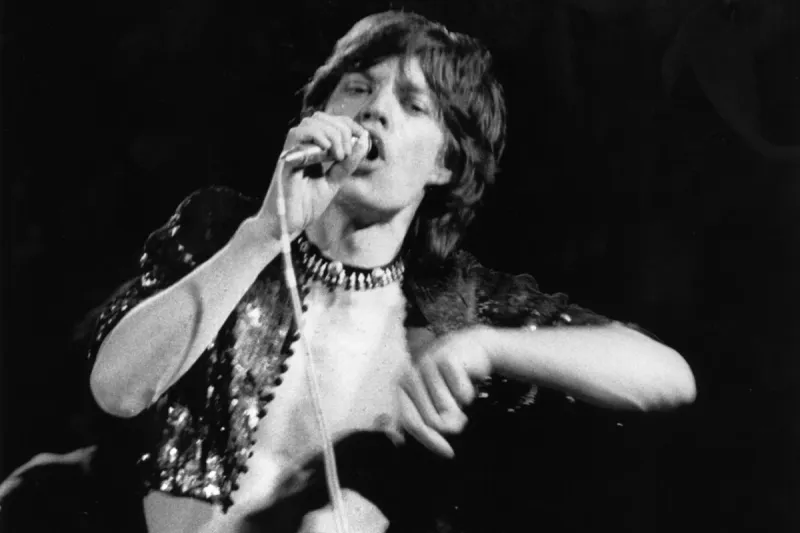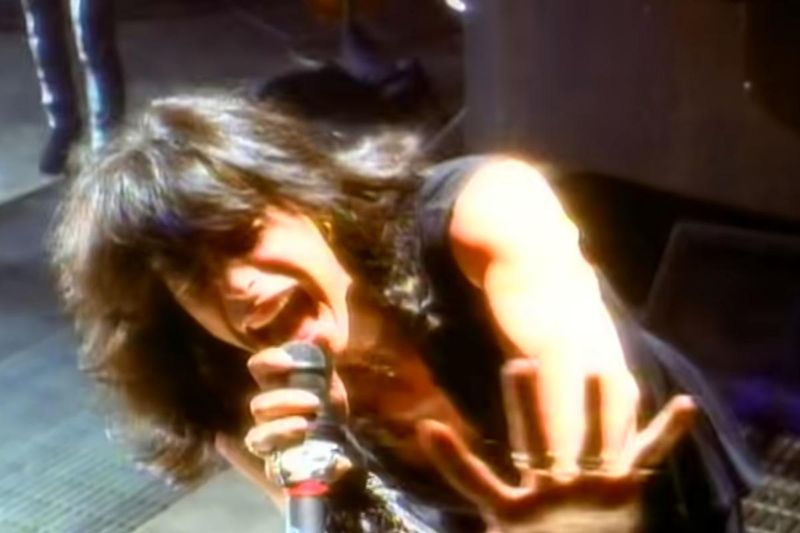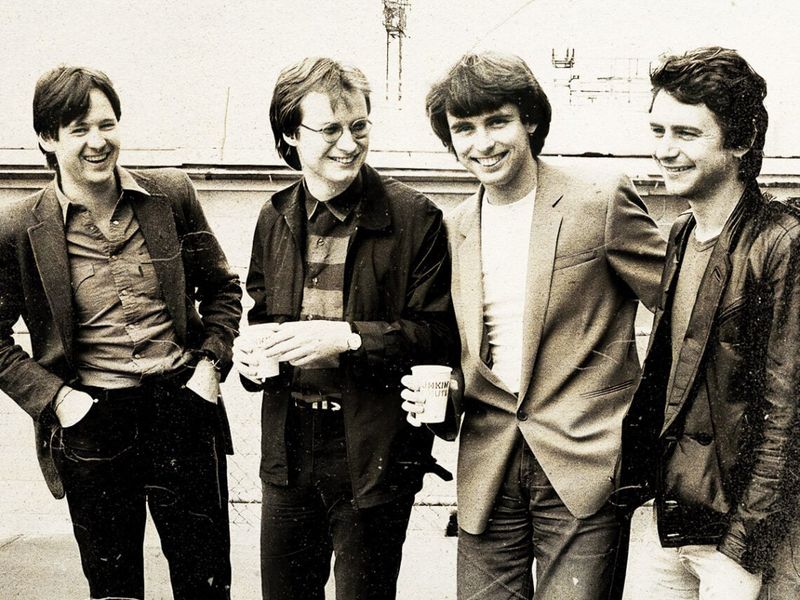From blasphemous lyrics to political jabs and outright rebellion, these rock songs didn’t just make waves—they made enemies. Whether it was parents, politicians, or entire nations, these tracks stirred up serious controversy when they dropped—and they still ruffle feathers today.
1. “God Save the Queen” – Sex Pistols (1977)
Imagine a band daring to call the monarchy a “fascist regime” during Queen Elizabeth II’s Silver Jubilee. The Sex Pistols did just that with “God Save the Queen.” Despite being banned by the BBC and excluded from official charts, it skyrocketed to No. 2. This punk anthem remains one of the most controversial songs in British history. With its raw energy and unapologetic stance, it challenged societal norms and rattled the establishment. The song’s legacy is as fierce as its initial impact, continuing to provoke discussion and debate about authority and rebellion.
2. “Imagine” – John Lennon (1971)
John Lennon’s “Imagine” invites listeners to envision a world without barriers. While celebrated as a peace anthem, its lyrics about imagining “no religion” and “no countries” stirred outrage among conservatives and religious groups. At the time, the song sparked heated debates about secularism and nationalism. Yet, its soothing melody and idealistic vision have made it an enduring classic. Despite the controversies, “Imagine” continues to inspire hope and reflection, challenging listeners to ponder the possibilities of harmony and unity. Its message remains as relevant today as it was over fifty years ago.
3. “Lucy in the Sky with Diamonds” – The Beatles (1967)
The Beatles’ “Lucy in the Sky with Diamonds” became notorious for its alleged drug references. Many believed the title was a cleverly disguised nod to LSD, despite the band’s denials. The song’s psychedelic imagery led to bans by schools and radio stations, fueling speculation and intrigue. Its whimsical and vivid narrative captured the spirit of the 60s counterculture. Even today, it stands as a symbol of the era’s experimentation and free expression. The rumors surrounding its meaning have only added to its mystique and enduring popularity in music history.
4. “Closer” – Nine Inch Nails (1994)
With its explicit chorus and disturbing music video, Nine Inch Nails’ “Closer” pushed boundaries in the 90s music scene. The provocative line, “I want to f*** you like an animal,” shocked audiences and led to heavy censorship on MTV. Some stations refused to air it altogether. The song’s raw and aggressive tone challenged societal norms and provoked strong reactions. Despite the controversy, or perhaps because of it, “Closer” remains a defining track of its time. Its boldness and refusal to conform have made it an enduring symbol of artistic freedom and rebellion.
5. “Cop Killer” – Body Count (1992)
Ice-T’s hardcore punk band Body Count ignited a firestorm with “Cop Killer.” Released as a protest against police brutality, it drew condemnation from politicians, including President George H.W. Bush. The intense backlash led to its removal from the album. The song’s aggressive stance and unapologetic message resonated with listeners who felt marginalized. While it faced censorship and controversy, “Cop Killer” highlighted the power of music as a form of protest. Its legacy endures as a potent reminder of the tensions between authority and artistic expression in the modern age.
6. “Sympathy for the Devil” – The Rolling Stones (1968)
With “Sympathy for the Devil,” The Rolling Stones gave Satan a charming voice, narrating human history. This portrayal outraged religious groups, who accused the band of devil worship. The song’s provocative lyrics and captivating rhythm have made it a lightning rod for debates on rock music and moral panic. Its bold exploration of controversial themes continues to intrigue and unsettle listeners. Despite the backlash, The Rolling Stones’ daring approach to challenging conventions has solidified the song’s status as a classic. It remains a testament to the power of music to provoke and inspire.
7. “Jeremy” – Pearl Jam (1991)
Pearl Jam’s “Jeremy” is a haunting reflection on a real school shooting. Its dark lyrics and intense video drew heavy criticism for their graphic portrayal of violence and despair. MTV eventually banned the original video due to its powerful and unsettling imagery. The song’s emotional depth and raw portrayal of tragedy sparked conversations about youth violence and media responsibility. While controversial, “Jeremy” resonated with audiences, highlighting the complex interplay between art and reality. Its legacy continues to evoke reflection and dialogue about societal issues and the impact of music on culture.
8. “Brown Sugar” – The Rolling Stones (1971)
“Brown Sugar” by The Rolling Stones is both celebrated and criticized for its provocative lyrics. Referencing slavery, sex, and violence, the song has faced renewed scrutiny in modern times. Even Mick Jagger has expressed discomfort with the lyrics, leading the band to drop it from setlists. Despite its controversial content, the song’s catchy rhythm and energetic performance have cemented its place in rock history. It serves as a reflection of changing societal attitudes and the ongoing debate about artistic expression and responsibility. The song’s legacy is complex, blending admiration and critique.
9. “American Idiot” – Green Day (2004)
Green Day’s “American Idiot” is a defiant anthem that takes aim at George W. Bush-era America. Its politically charged lyrics resonated with anti-establishment fans but drew criticism from conservative media as anti-American propaganda. The song’s energetic punk style and biting commentary captured the discontent of a generation. Despite the backlash, “American Idiot” became a rallying cry for those questioning authority and societal norms. Its boldness and unapologetic critique have cemented its status as a modern classic. The song continues to inspire and provoke, reflecting the enduring power of music as a tool for change.
10. “Janie’s Got a Gun” – Aerosmith (1989)
Aerosmith’s “Janie’s Got a Gun” tackles heavy themes of child abuse and revenge. Its haunting lyrics and intense narrative prompted praise for raising awareness, but also faced bans for graphic content. The song’s powerful storytelling and emotional depth resonated with listeners, sparking conversations about taboo topics. While controversial, it highlighted the band’s willingness to address serious social issues through their music. “Janie’s Got a Gun” remains a bold and impactful track, reflecting the complexities of justice and empowerment. Its legacy endures as a reminder of the transformative power of music.
11. “Dear God” – XTC (1986)
XTC’s “Dear God” is an atheist anthem that sparked significant controversy upon release. Some American record stores refused to sell the album, and band members received death threats. Despite its modest chart performance, the song’s provocative questioning of faith and religion captured attention. Its thoughtful lyrics and challenging themes continue to spark debate and reflection. “Dear God” stands as a testament to the courage needed to confront established beliefs. The band’s willingness to tackle such a divisive topic underscores the enduring role of music in exploring and questioning societal norms.
12. “Killing in the Name” – Rage Against the Machine (1992)
Rage Against the Machine’s “Killing in the Name” is an explosive anthem with an anti-authoritarian message. Its repeated line, “F*** you, I won’t do what you tell me,” led to bans, censorship, and celebration. The song’s raw energy and powerful lyrics resonated with those questioning authority, becoming a staple at protests. Despite attempts to silence it, “Killing in the Name” endures as a symbol of resistance and defiance. Its impact on music and culture is undeniable, illustrating the unyielding spirit of rebellion and the power of music to inspire change.



